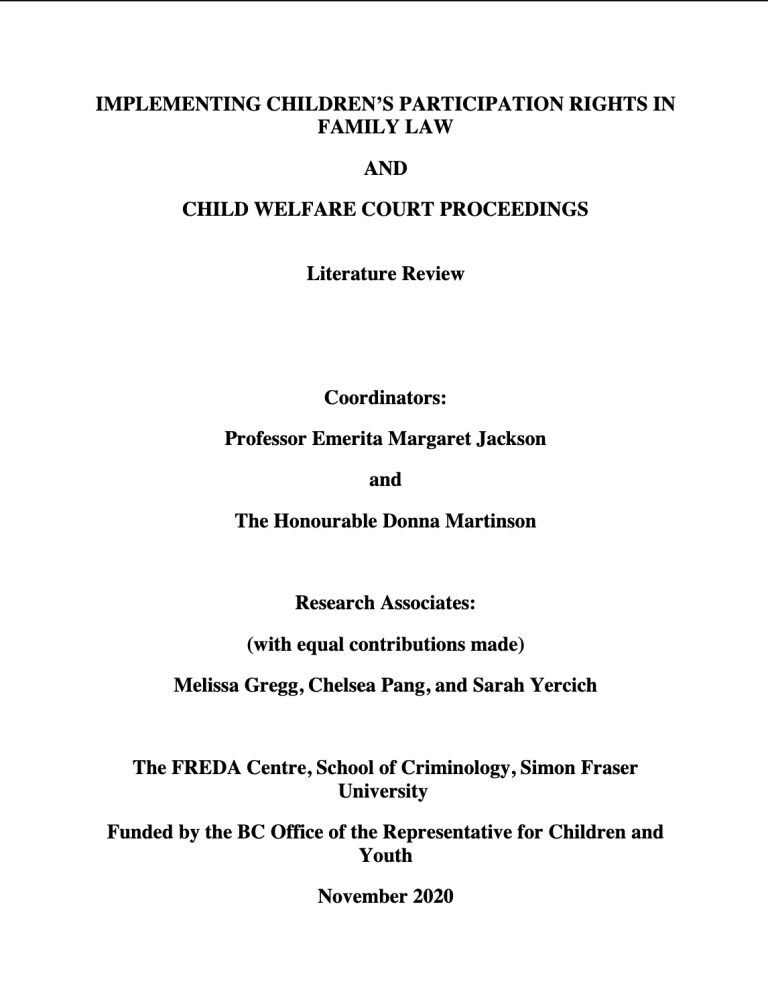Search the Baseline Project
To search the recommendations database, please visit the database main page.
To search the recommendations database, please visit the database main page.

In November 2020, the FREDA Centre, School of Criminology, Simon Fraser University published “Implementing Children’s Participation Rights in Family Law: Literature review,” funded by B.C.’s Office of the Representative for Children and Youth. This literature review addresses several gaps and barriers in Canada’s management of children’s legal representation. Recommendations include coordinating approaches to legal participation throughout Canada through the appointment of a National Commissioner for Children and Youth.